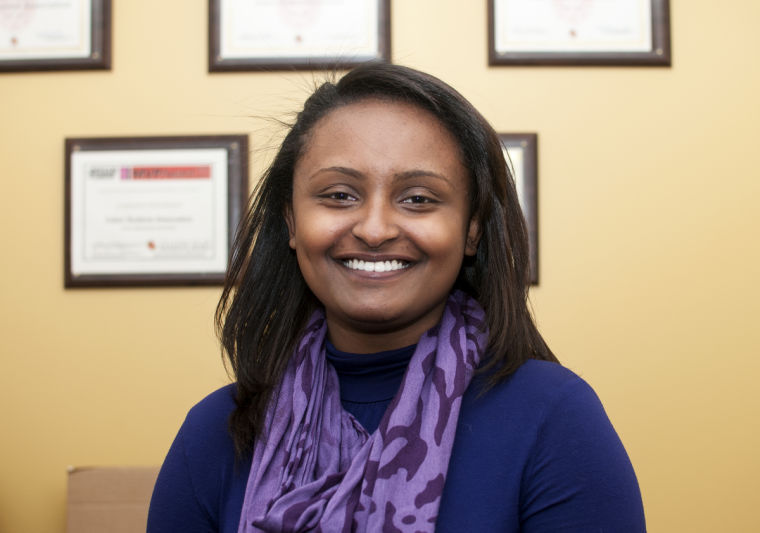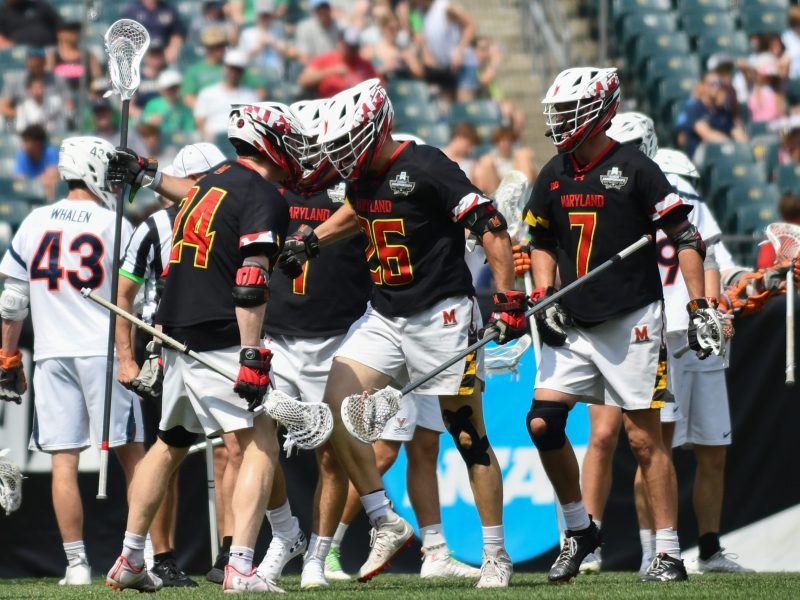
Junior Eden Ejigineh said she learned more in the two hours she spent eating lunch with a homeless man as part of a requirement for a psychology class than “in all [her] life.”
EDITOR’S NOTE: The name of an individual and his business were withheld in this article to protect his privacy.
Eden Ejigineh never expected the impact she would make when she invited a homeless man to lunch at a local restaurant.
As the junior psychology major left work, she noticed a man in withered clothes sitting outside of a family-owned restaurant. She decided to invite him to lunch, pouncing on the opportunity to complete a psychology assignment to “add some good back into the world” and grab food with company.
The assignment was only worth about 2 percent of Ejigineh’s grade inthe I-series course PSYC289E: Psychology of Evil, a class offered for the first time last semester in which students scientifically study evil and reflect on an individual’s vulnerability to become a victim or a perpetrator. But Ejigineh’s interaction with the man outside the restaurant would do much more than earn her a passing grade.
At a window seat, the unlikely pair chatted for two hours over penne rosa with salmon. For Eden, the interaction would change the way she saw Edmond Jackson, a middle class man who lost his job, home and family. Jackson was laid off seven years ago after losing his wife and two sons in a car accident.
“At first he didn’t say much and kept giving me short answers, so I began telling him about myself to make him more comfortable,” Ejigineh said. “But soon I learned he was hopeful and kind. He kept smiling and talking about how he was going to get back to the way he was.”
Two hours of conversation, one additional order and two goodbyes later, Ejigineh returned to her car and Jackson returned to his spot on the bench.
“I learned more about people in those two hours than in all my life,” she said.
Two months later, Ejigineh returned to the same restaurant with a friend and gave the waiter her order — penne rosa with salmon. But when she looked up at the familiar face, she was speechless — the same man she had dined with was standing before her.
Shortly after Ejigineh had left the spot two months before, the restaurant manager — who requested to remain anonymous to protect his privacy — offered Jackson the opportunity to trade his tattered trench coat and hat for a worker’s uniform, and his bench for a room in the manager’s home.
Intrigued by the appearance of a college student and a homeless man eating together, the manager watched from behind his counter and sent a waiter to check on the pair as they talked.
As Ejigineh left the restaurant, the manager pulled Jackson into his office and learned his story. Brought to tears, the manager and his wife offered Jackson not only a full-time position as a busboy, but also a place to stay in their basement.
“We told him he would be treated like every other employee and that he would have to pay them $50 for groceries, utilities and any other expenses,” the manager said. “Jackson asked for only one request — he not be made a charity case and that people not inquire as to what happened.”
Jackson doesn’t want any media attention, the manager said, adding he is doing well and close to living on his own.
For Ejigineh, the long-term implications of her simple assignment were unexpected.
“I wasn’t expecting anything going into the restaurant. Never underestimate the kindness of people’s hearts and do good for others,” she said.
Scott Roberts, who taught the I-series course last fall, agreed.
“I had no idea that this small assignment would, for many students, be the most significant aspect of their experience in the course,” Roberts said.
Many of the other 119 students in the class completed similarly inspiring acts — one girl paid for the individual behind her at a restaurant, setting off a chain reaction of customers paying for each other.
The beauty of the assignment, Roberts said, lies in the fact that students don’t know exactly how they have added good back into the world; he hopes the assignment inspires students to imagine and assume what could have happened.
“If you wouldn’t bother because you won’t get the credit or the feedback, then you’re doing it for the wrong reason anyway,” he said.
Though there may always be good and evil in the world, Roberts hopes courses like PSYC289E will force students to see beyond those limiting labels.
“‘Normal’ and ‘good’ people can be led to do quite ‘evil’ things,” he said. “The scary part is that we are not very good at predicting what we’ll do in any given situation, but we are all very good at justifying what we did.”
Roberts and the restaurant manager hope people will be inspired by acts like Ejigineh’s touching interaction.
“Even a small act can have profound effects, so when the world feels full of evil, I want students to ask themselves what they are going to do right now to put a little bit of good back into it,” he said.



